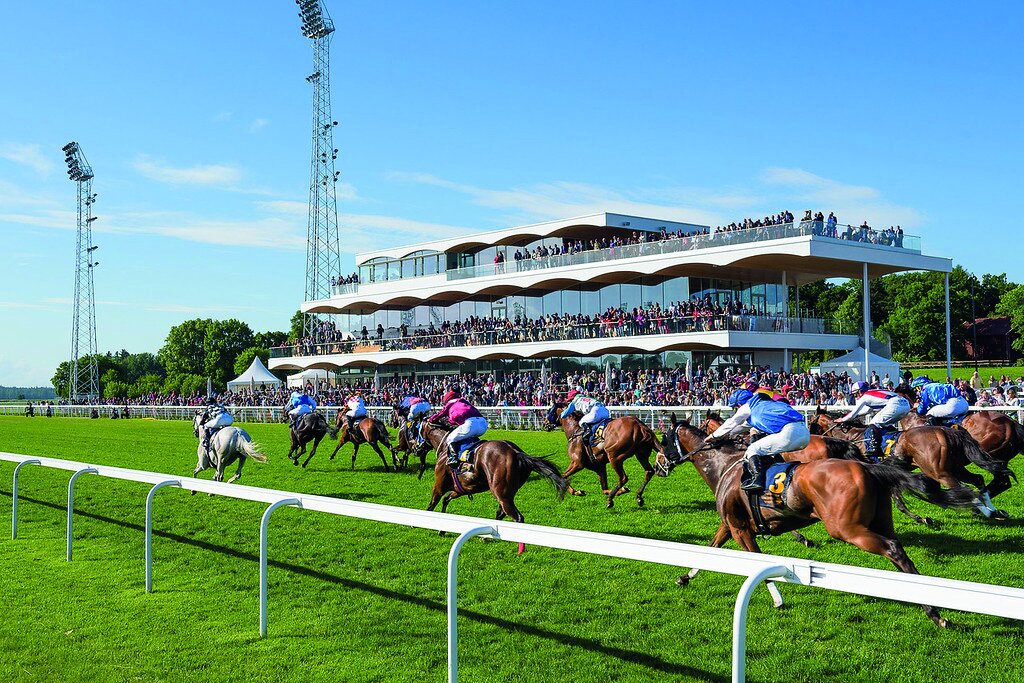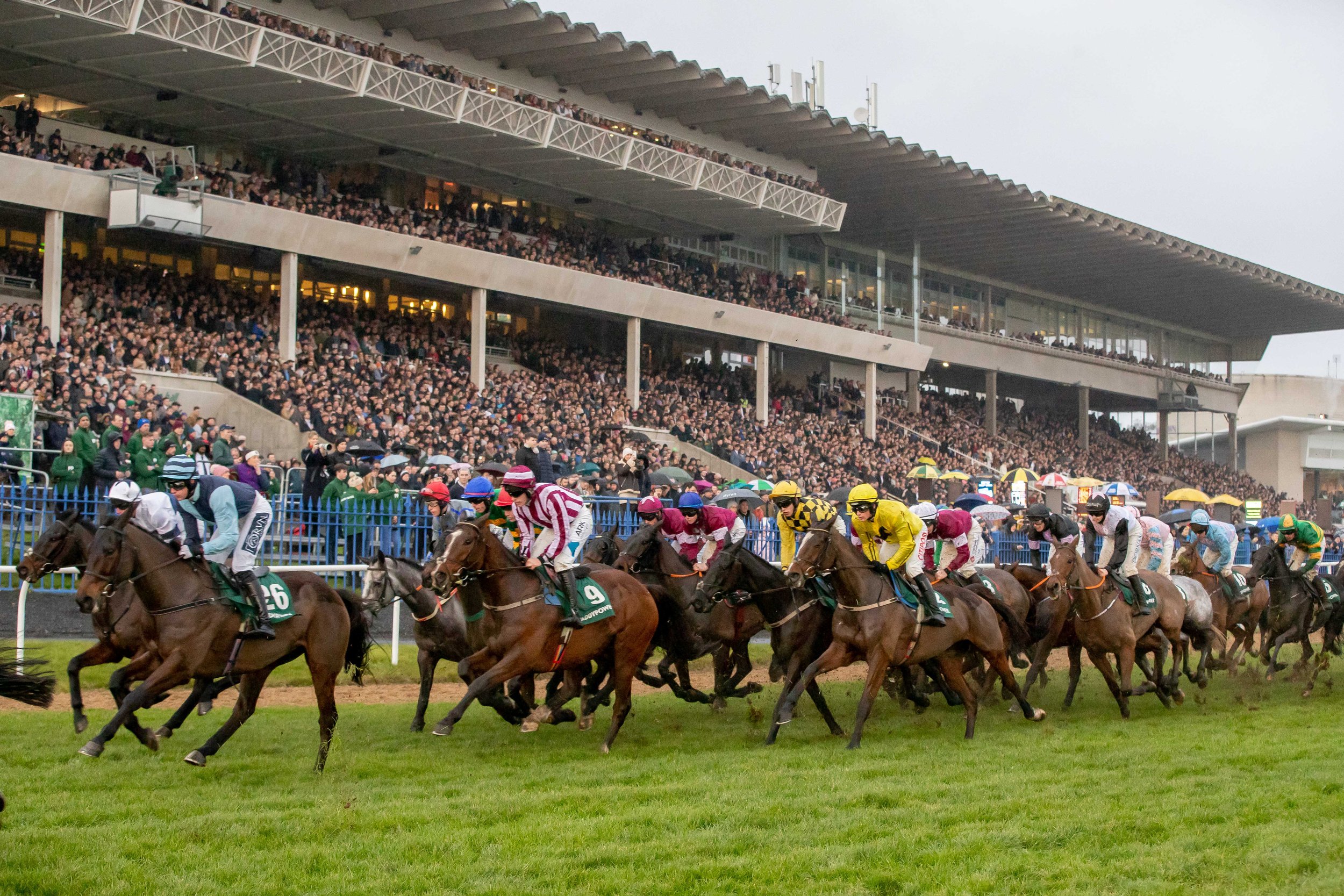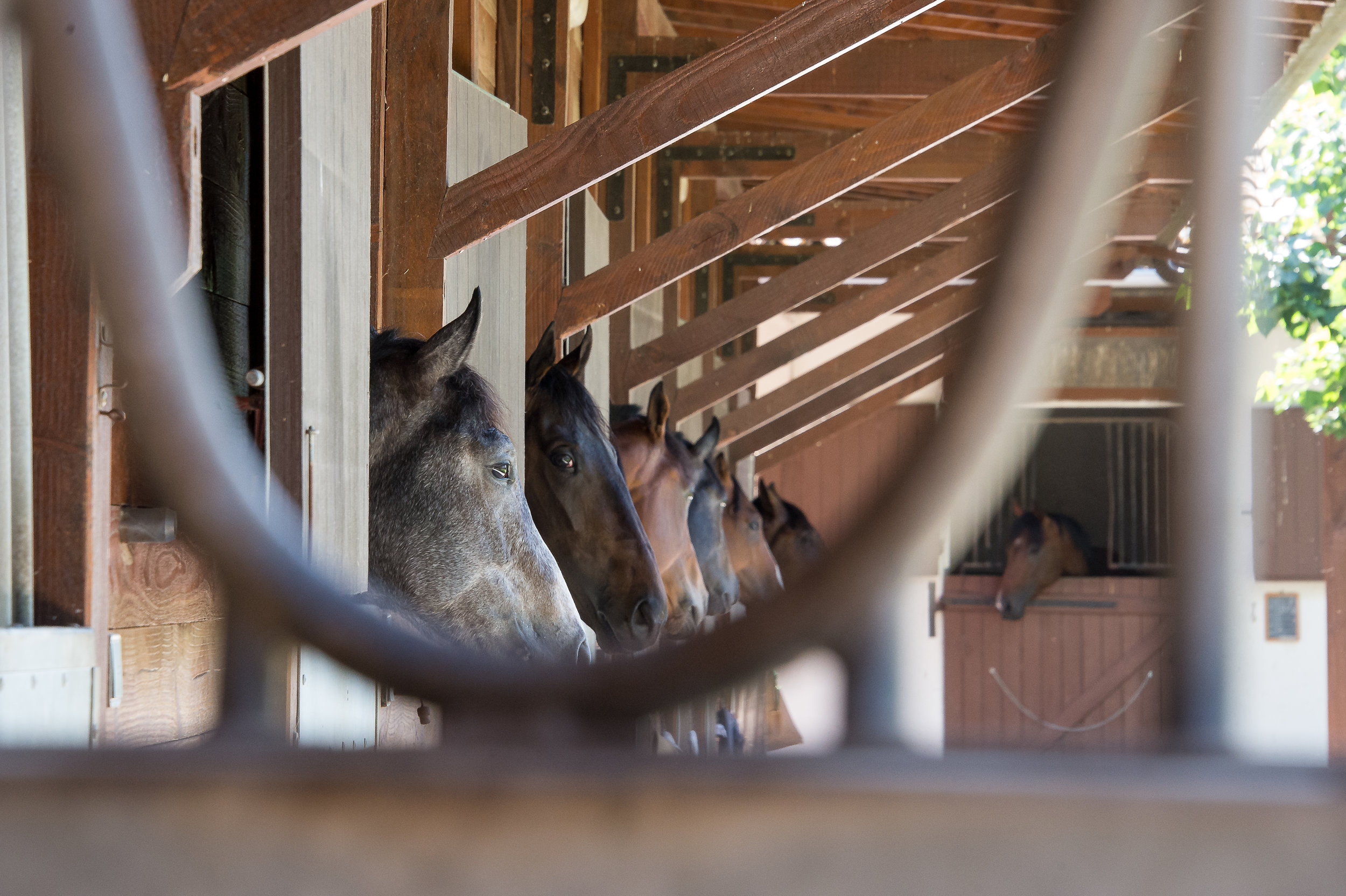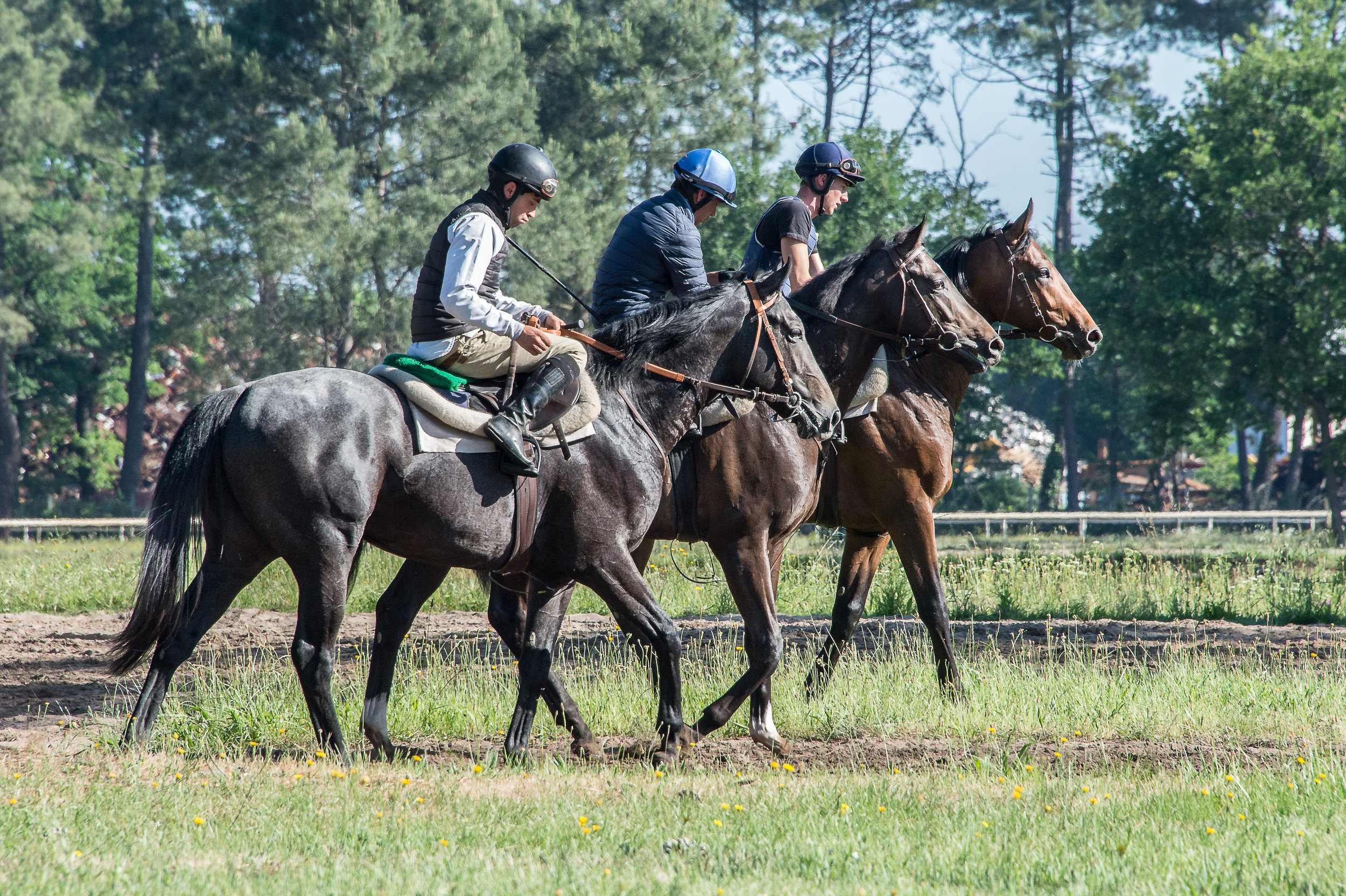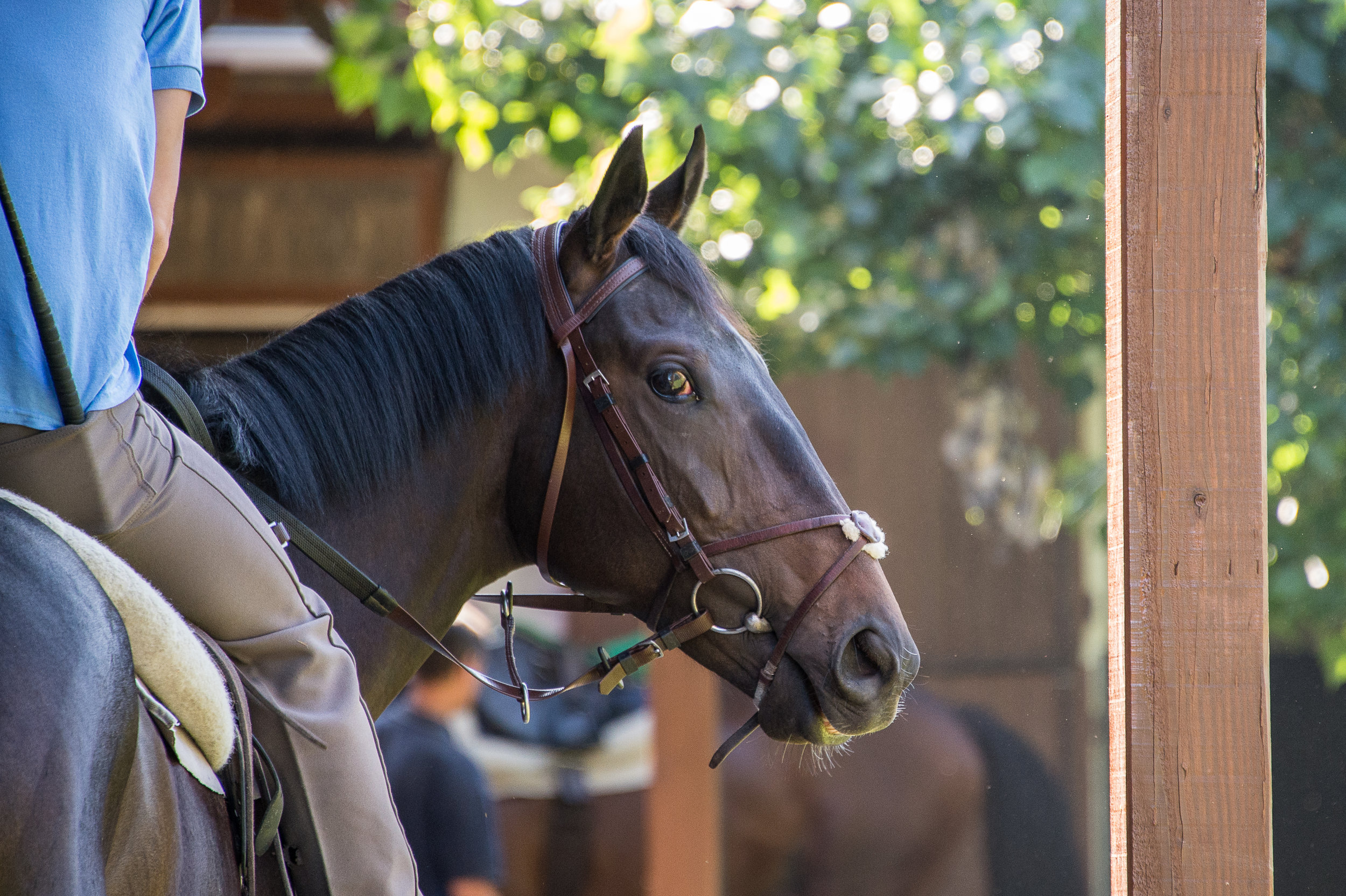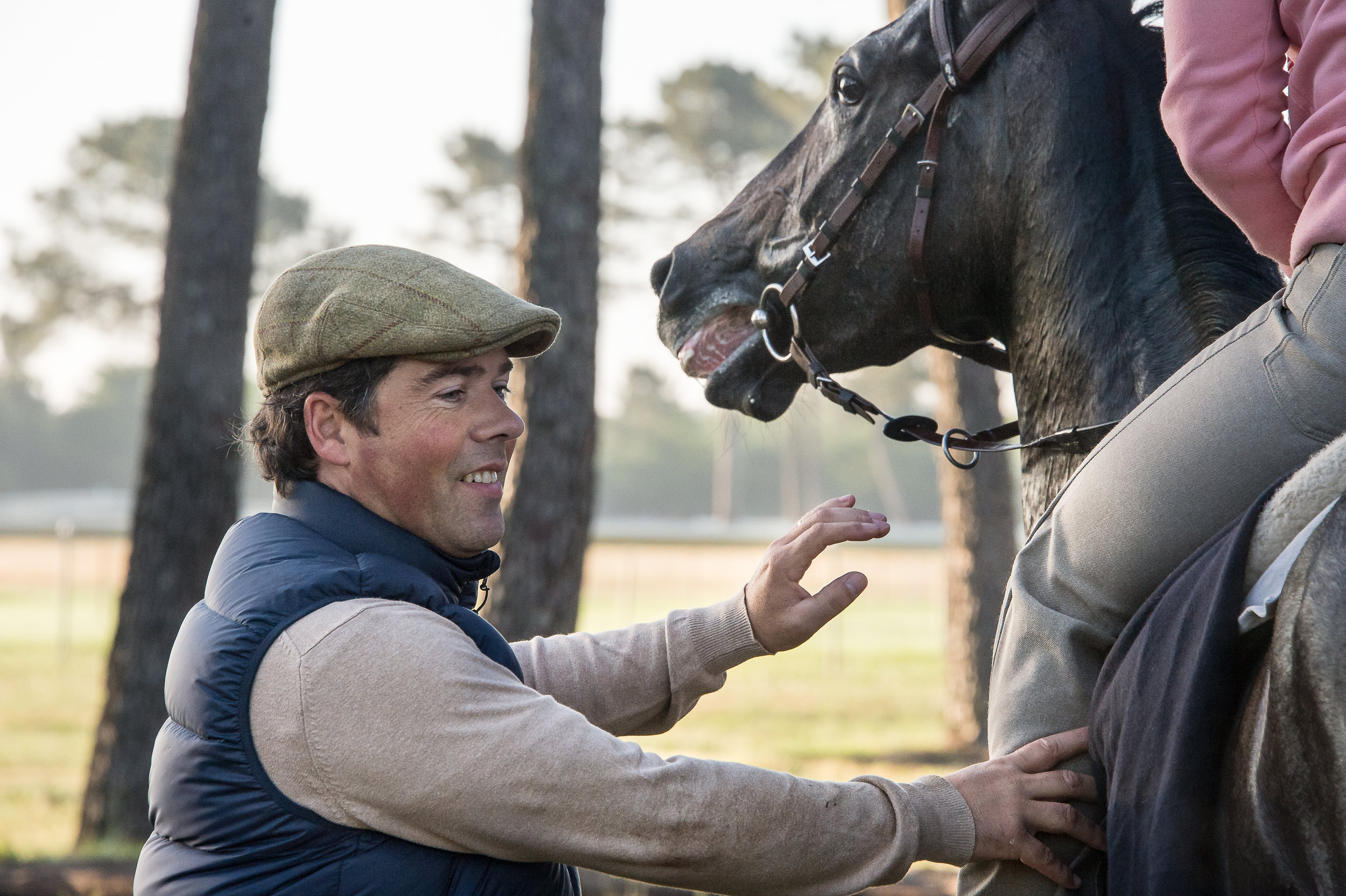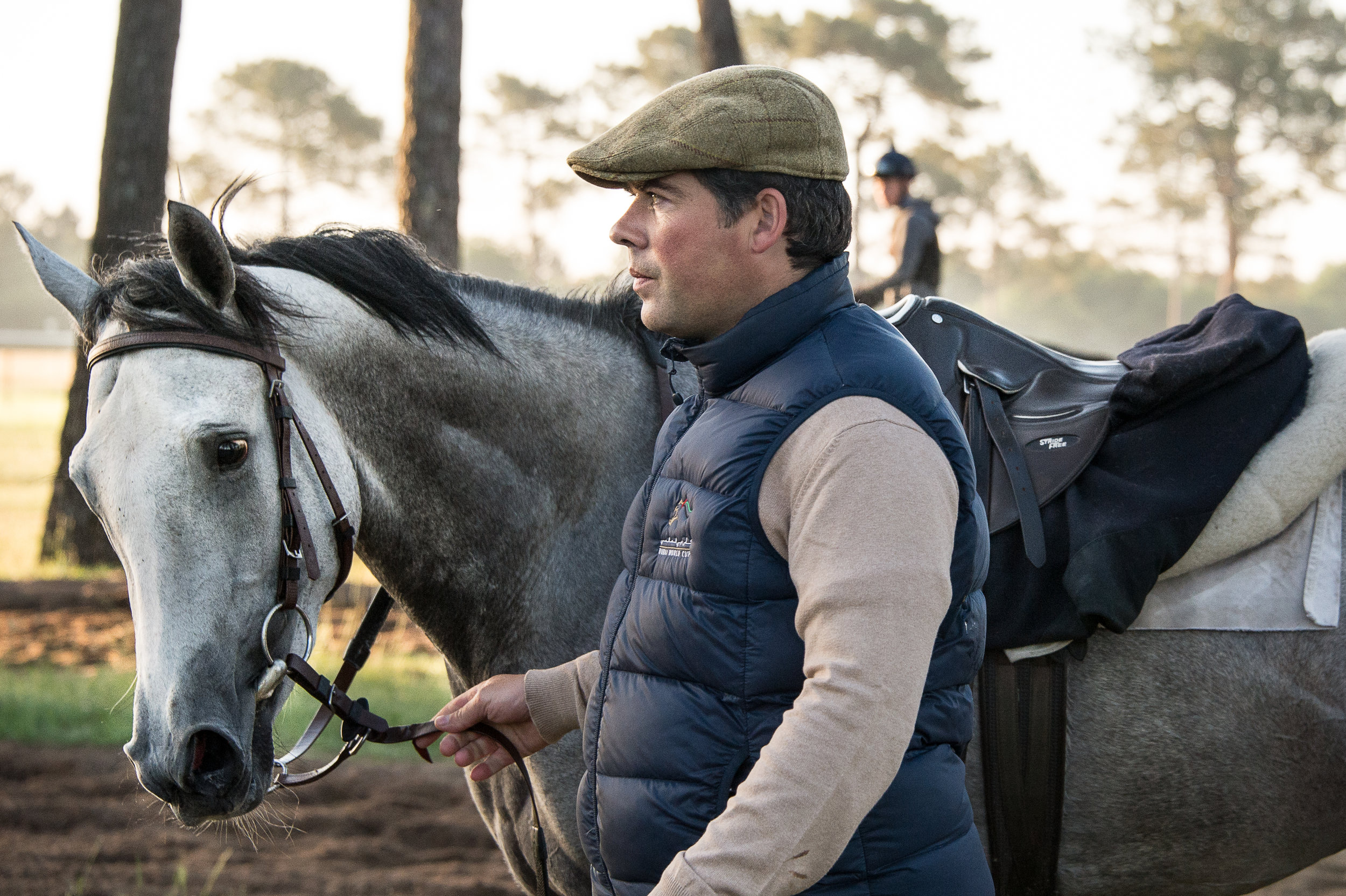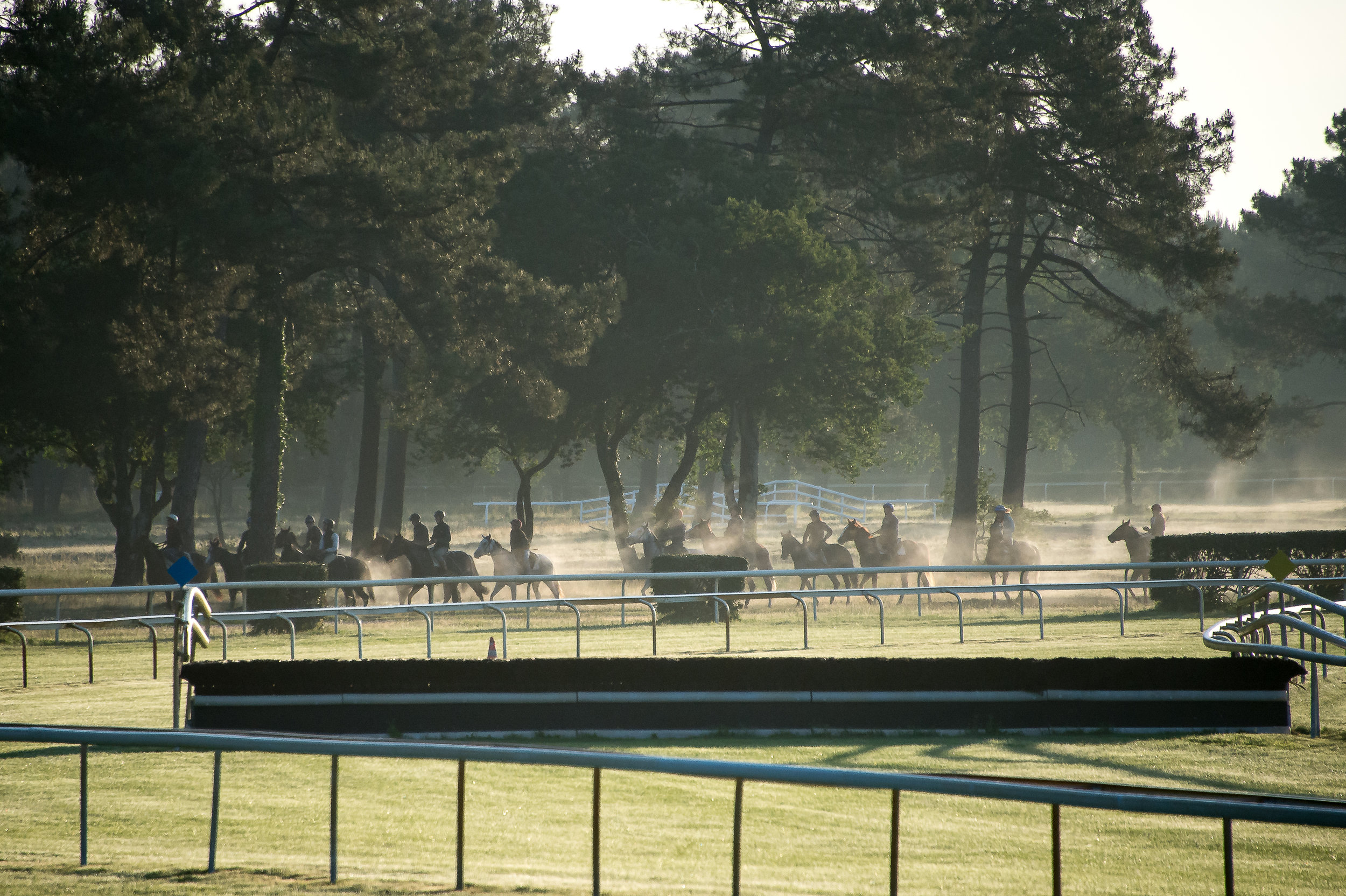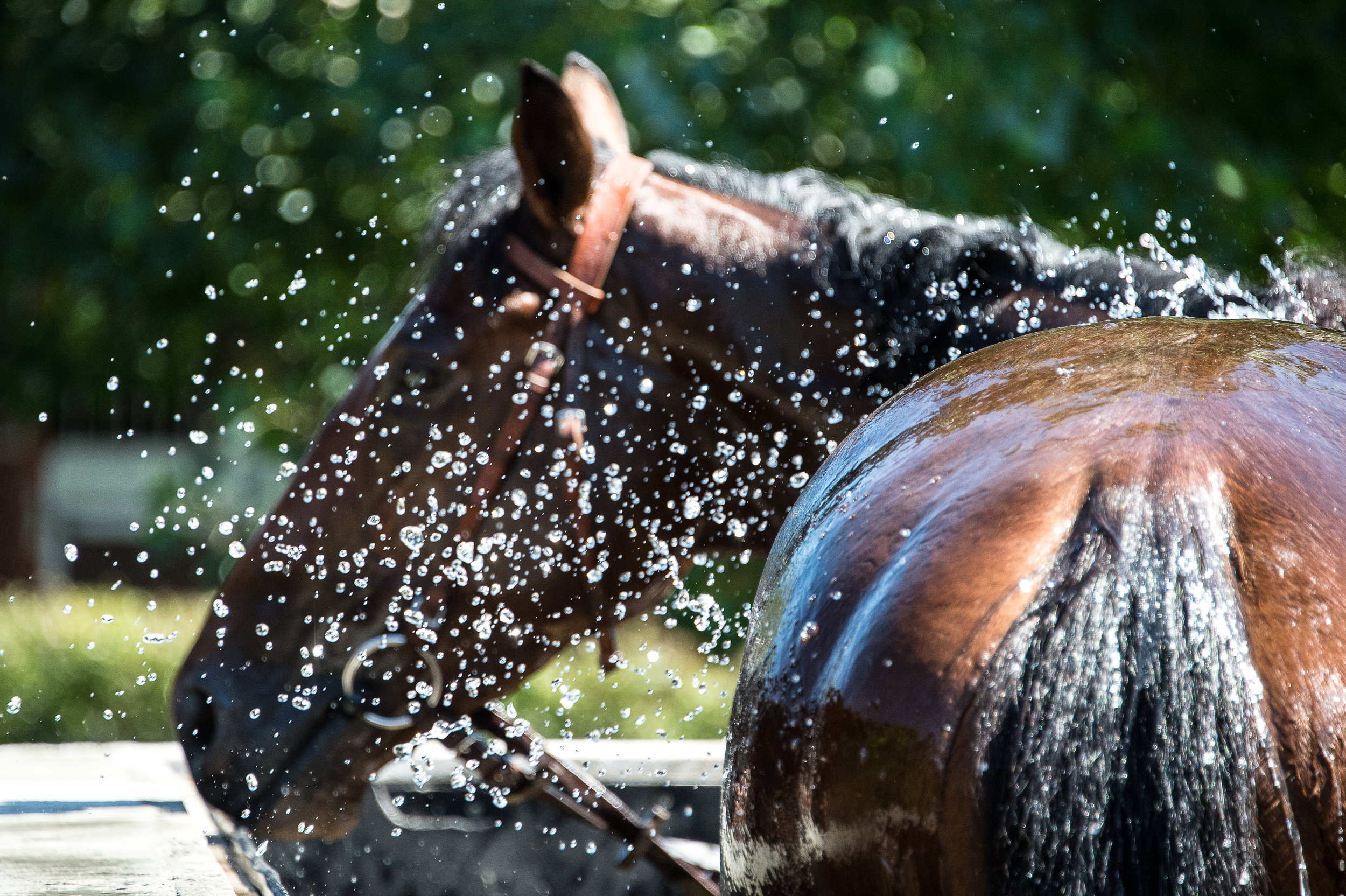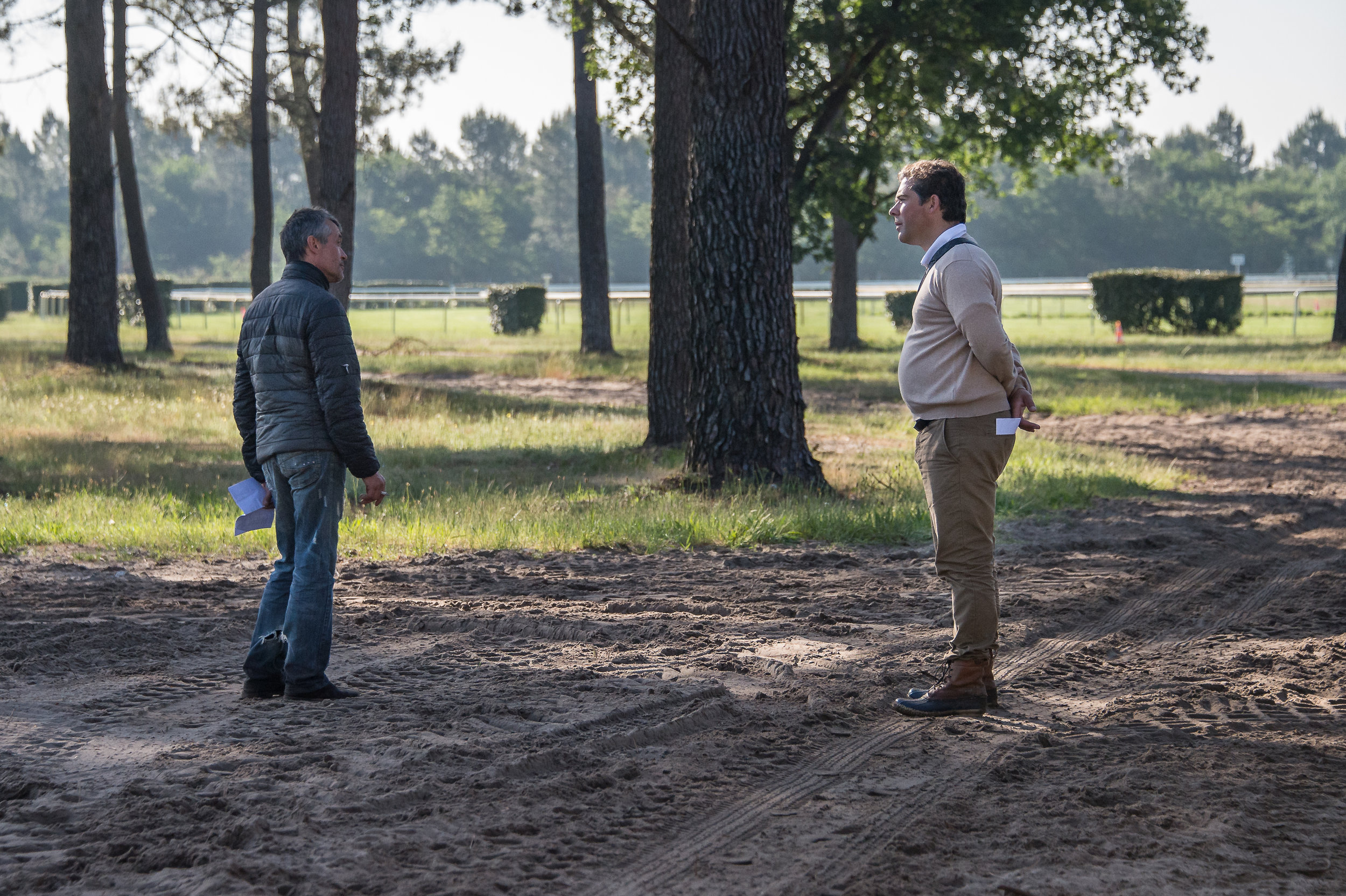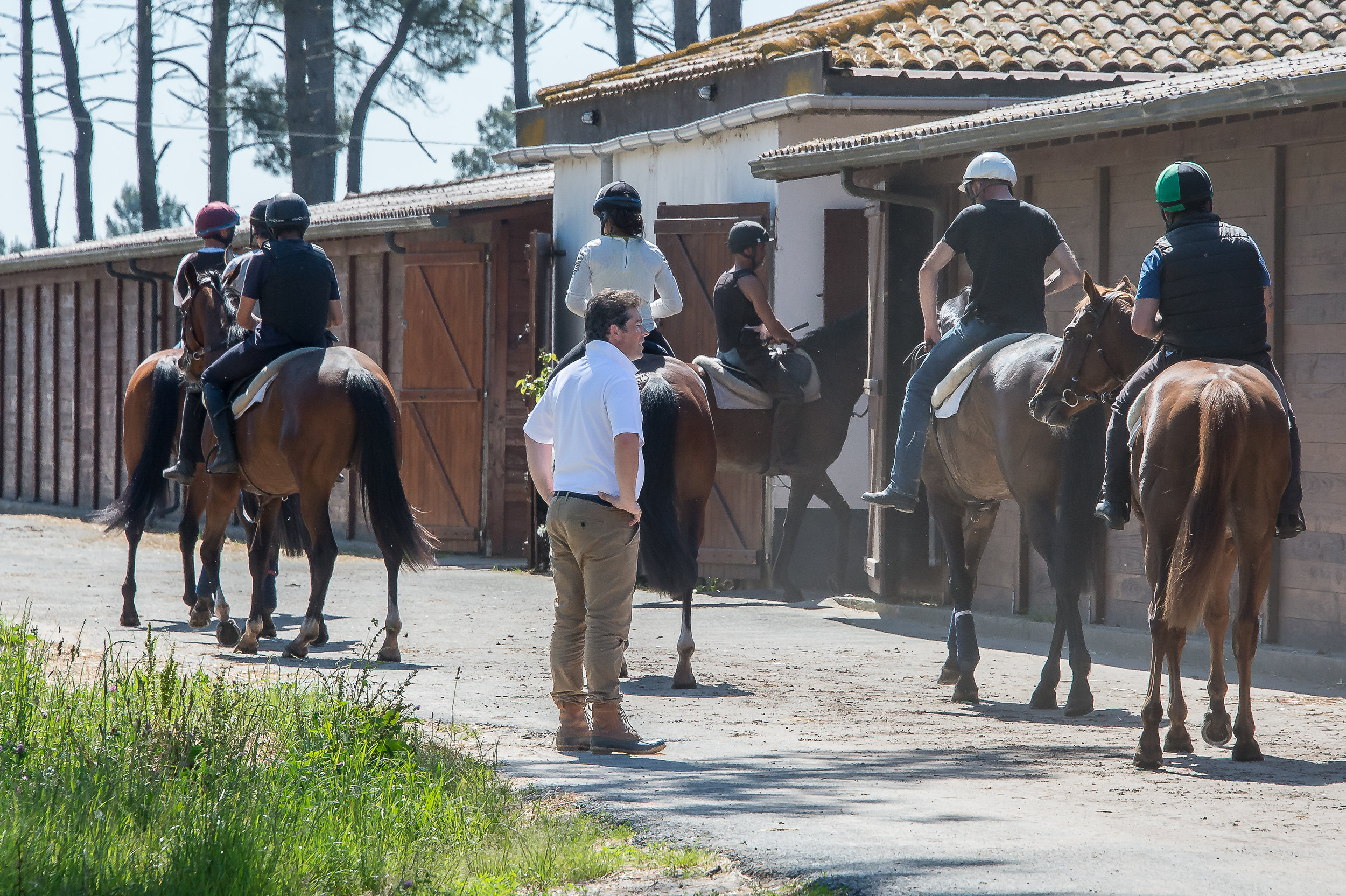Have horse will travel - incentives to race in 2023
/Article by Lissa Oliver
Fitness is one thing, but placing horses in suitable races to provide the best opportunity for them is quite possibly the trickiest part of a trainer’s role. It can be hard enough to search our own racing calendar for suitable races, and yet, delving further into international calendars could well pay dividends, if not in prize money then in adding valuable black type. Despite problems with travel, the racing world grows ever smaller, and it can certainly pay to shop around and look further afield. Many racecourses will offer travel incentives to encourage international participation, and the VIP experience for visiting owners will provide a lasting memory.
France
Close to home and a regular destination for most European trainers, prize money in France rose to €278 million last year, up on 2021 by €30 million (+12%) and on 2019 by €20 million (7.75%). The 2023 France Galop budget includes a €10 million increase in prize money, with an objective to stimulate the number of young horses in training in France.
As a result, 19 races at Parisian racecourses will see their total prize money raised to €50,000, paid out to the first seven finishers. The winner will earn €25,000, increased by 80% for two-year-olds if the winner is eligible for the owner's premium. The total sum of earnings to the winner could be €45,000. The selected 19 races take place throughout the year and include various distances. France Galop describes them as the most sought-after and competitive events for unraced horses in the French programme, with a consistent track record of producing a number of Group horses.
In the French provinces, two races for unraced horses have been selected to be included in this scheme. They are the Prix du Four à Chaux and the Prix Didier Vezia, which will be run in September at Bordeaux. Each race will offer a total prize money of €35,000; and the winner will earn €31,500 if eligible for the owner's premium.
The increase in prize money has also been spread throughout maiden races, and races for unraced horses, across all of France.
The new Arqana Series is also of interest to those racing in France - the sales company offering a series of races worth €1.2m (£1.06m), open only to the yearlings and foals offered at Arqana Sales in 2022 and the two-year-olds offered at the forthcoming Arqana May Breeze Up. The Arqana Series will consist of five races, for two-year-olds and three-year-olds (the latter run in 2024) on a Thursday evening during the prestigious Deauville meeting and on the Saturday of the Prix de l'Arc de Triomphe weekend. Each race of the Arqana Series will reward both owners and vendors.
The juvenile races at Deauville will be run over 1400m (7f) for unraced horses and 1200m (6f) conditions, with a 2000m (10f) race in 2024 for three-year-olds. At ParisLongchamp, the two-year-old race will be a conditions race over 1600m (8f).
Of course, all races in France already carry a lucrative system of owners’ premiums on top of prize money. Two-year-olds and three-year-olds win an additional 80%, four and five-year-olds win an additional 55%, and six-year-olds and up receive an additional 45%. An additional 35% is paid to winners of Gp.1 races, whatever their age.
Germany
Deutsches Derby
Germany is still not yet back to the level of pre-Covid 2019, but significantly more prize money and bonuses were paid out in 2022 than in 2021 [€12.39m (£10.95m)], which will rise to €13m (£11.47m) in 2023. An increase of €2.15m (£1.90m) was recorded in prize money, and the average race value is higher than in previous years at €12,039/£10,651. The Deutsches Derby 2023 will be worth €650,000/£574,967, the Preis der Diana €500,000/£442,290, and the Grosser Preis von Baden worth €400,000/£ 353,985.
At smaller German tracks, the Harzburg meeting, 22–30 July, has significantly increased prize money for 2023, and the showcase handicaps carry €17,500/£15,475. The highlight of the meeting is the BBAG Auction Race worth €37,000/£32,683. "We want to support basic racing in particular," explains Racing Club President Stephan Ahrens, "because the costs of keeping horses have risen enormously. That is why we have increased the race values by up to 25%.”
Scandinavia
Further afield for some, the full potential of Scandinavia has yet to be tapped, particularly the prize money on offer at Bro Park in Sweden. Bro Park covers 500 acres and has permanent stabling and training facilities, able to accommodate a further 100 horses on race days. The facilities provide the best possible environment for horses and those working with them. It is just over 30 minutes from the centre of Stockholm by car and a similar distance from Arlanda Airport.
Bro Park
Foreign raiders might be tempted by Sweden’s major race, the 2400m (12f) Gr3 Stockholm Cup for three-year-olds and up, at Bro Park on Sunday, 17 September—worth €125,825/£111,103. Earlier, on 11 June at Bro Park is the Gp.3 Stockholm Stora Pris, 1750m (8 1/2f) for three-year-olds and up— worth €89,882/£79,357. The Stockholm Cup card includes Sweden's most important two-year-old race, the 1400m (7f) Appel Au Maitre Svealandlöpning—worth €23,108/£20,424—and won by British trainer Archie Watson last year, who completed a double on the day.
On dirt, for three-year-olds and up, Jägersro hosts the 1750m (8 1/2f) Listed Pramms Memorial—worth €89,882/£79,357—21 May; the 2400m (12f) Svensk Derby—worth €223,869/£197,629,—16 July; and the €71,925/£63,509 Zawawi Cup over 1200m (6f), 16 July. Both Bro Park and Jägersro offer plenty of other opportunities at distances of 1200m (6f) up to 2400m (12f) with values ranging from €26,971/£23,809 up to €59,339/£52,386.
In Norway, the 2400m (12f) Norsk Derby at Ovrevoll 20 August has a total value of €108,662/£96,067; and the 2400m (12f) Gp.3 Oslo Cup 15 June is worth €23,721/£20,973 to the winner. On 21 August, the Gp.3 Marit Sveaas Minnelop is run at Ovrevoll over 1800m (9f), carrying a first prize of €66,406/£58,724.
Let’s not forget Denmark, where the Gp.3 Scandinavian Open Championship for three-year-olds and up, over 2400m (12f) at Klampenborg on 27 May, is worth €57,545/£50,903, and a first prize of €31,967/£28,280.
Spain
While there may not be high levels of prize money to chase on a regular basis in Spain, it is worth noting the major prizes in the Spanish calendar. The Listed Gran Premio de Madrid over 2500m (12 1/2f) at the end of June, for three-year-olds and up, is the major summer highlight, worth €68,000/£60,068 (€40,000/£35,330 to the winner; €16,000/£14,132 to the second; €8,000/£7,065 to the third; and €4,000/£3,532 to the fourth).
In 2023, it will be run on Saturday, 24 June and is supported on the card by the Premio Baldoria for three-year-olds and older fillies and mares: over 1600m (8f), worth €15,000/£13,247 to the winner; €6,000/£5,299 to the second; €3,000/£2,649 to the third; and €1,500/£1,324 to the fourth.
August at San Sebastián sees the 1500m (7 1/2f) Premio Santander Cup (Criterium International) for two-year-olds, with prize money of €40,800/£36,018. The €59,500/£52,532 Gran Premio Copa De Oro De San Sebastián, over 2400m for three-year-olds and up, is the meeting highlight, worth €35,000/£30,900 to the winner; in addition to an impressive gold cup, €14,000/£12,360 goes to the second, €7,000/£6,180 to the third and €3,500/£3,090 to the fourth. On the supporting card is the Gran Premio Turismo Gobierno Vasco, 1600m (8f) for three-year-olds and up with a total prize of €40,800/£36,018.
On Sunday, 15 October, the highlight of the Spanish season will be Champions Day, with a card that includes the Gran Premio Memorial Duque de Toledo over 2400m (12f) for three-year-olds and up, with a value of €68,000/£60,068 (€40,000/£35,330 to the winner, €16,000/£14,132 to the second, €8,000/£7,065 to the third and €4,000/£3,532 to the fourth). Also run on the day is the Gran Premio Ruban over 1200m (6f) worth €40,800/£36,018, with the winner taking home €24,000/£21,191, down to €2,400/£2,119 for fourth. A strong supporting card boasts lucrative added premiums of €5,000 for Spanish-breds.
Belgium
There are also opportunities for an average rated horse closer to home for some, in Belgium. As in Spain, the prize money might not be eye-catching, but neither is the competitiveness in comparison to similar races at home. The showpiece is the Prix Prince Rose, a National Listed Race over 2100m (10 1/2f) run at Ostend on Monday, 7 August with total prize money of €12,800/£11,304, with €8,000/£7,065 to the winner. The Prix Prince Rose is open to three-year-olds and older who have never been placed in the first five of a Pattern race.
Ostend also hosts three interesting conditions races in July and August: the Miler Cup, 1600m (8f); the Prijs Half Oogst and BFG Galop, 1800m (9f); and the Prijs BFG and Nymphenburger, 2200m (11f)—each with a total prize money of €8,000/£7,065, with €5,000/£4,416 for the winner. They are for four-year-olds and older without a handicap value or a value equal or lower than 30kg (66 lbs). Penalties for prize money received for wins and places since 1 July 2023 are 1kg per €1,000. There is also the UAE Sprint Cup Handicap over 1000m (5f) in August for four-year-olds and older with a handicap value equal or lower than 30kg (66 lbs). See the complete list of races and conditions here: www.bgalopf.be/Meetings.htm
Britain
In Britain, the BHA, Darley and Juddmonte have come together to sponsor a high-value developmental races series of 60 races, also supported in funding by host racecourses, offering increased prize money to horses at the start of their career. As with the French developmental programme, the hope is that they will be retained to race in Britain going forward. The BHA hopes to expand on the idea of increasing the values of Flat maidens and novice races in 2024 and long-term.
There will be 20 two-year-old restricted maiden and novice races worth €33,975/£30,000, supported by Juddmonte; 21 two-year-old open maiden and novice races worth €33,975/£30,000, supported by the BHA Development Fund; and 22 three-year-old and up open maiden and novice races worth €33,975–€56,626 (£30,000–£50,000), supported by Darley and the BHA Development Fund. The €56,626/£50,000 races will be run over longer distances to support middle-distance and staying horses.
Elsewhere in Britain, Newbury, having been infamously boycotted by trainers for one of its flat races last year, will see a 16% prize money increase this year, taking overall levels at the track to just over €6.79m/£6m. Newbury will host six novice and maiden races during the Flat season with prize money of €33,975 up to €56,626 (£30,000–£50,000).
The Racing League also returns for 2023, in which seven teams compete in 42 races over six meetings for over €2.2m/£2m prize money. The meetings for 2023 are Yarmouth 27 July, Chepstow 10 August, Windsor 17 August, Newcastle 31 August, Wolverhampton 7 September and Southwell 13 September. All races are handicaps with a range of ratings bands and distances, with normal BHA distribution for race prize money.
As with Arqana, British racing is boosted by the sponsorship of sales company Tattersalls, targeting yearlings purchased at the Tattersalls Somerville Yearling Sale, who will be eligible for the 1200m (6f) €112,826/£100,000 Tattersalls Somerville Auction Stakes run at Newmarket 26 August, as well as the 1200m (6f) €169,242/£150,000 Tattersalls October Auction Stakes, Newmarket 5 October.
Charlie Appleby-trained Regal Honour broke his maiden in the 2022 Stephen Rowley Remembered Novice Stakes at Newmarket to collect the 312th £20,000 Tattersalls October Book 1 Bonus.
The Goffs UK Harry Beeby Premier Yearling Stakes, 1200m (6f) on 24 August at York carries a guaranteed minimum value of €394,092/£350,000, for two-years-olds sold at the 2022 Doncaster Premier Yearling Sale.
Tattersalls also offer the €22,684/£20,000 Tattersalls October Book 1 Bonus Scheme for 2023. Participating owners will receive a €22,684/£20,000 bonus if their 2022 October Book 1 purchase wins a Class 2, 3 or 4 two-year-old maiden or novice race in Britain between 1 April and 11 November 2023, or any 'Open' two-year-old maiden run in Ireland between 25 March and 5 November 2023. The cost to enter the €22,684/£20,000 Tattersalls October ‘Book 1 Bonus’ Scheme is €1,928/£1,700, and there are over 300 qualifying British and Irish two-year-old maiden and novice races. All yearlings sold, bought in or failing to meet their reserve at Book 1 of the 2022 Tattersalls October Yearling Sale are eligible.
Ireland
Tattersalls are also major sponsors in Ireland, with the Tattersalls Ireland Super Auction Sale Stakes of €300,000/£265,889, worth €150,000/£132,942 to the winner and prize money of at least €5,000/£4,431 down to 10th. Over 1200m (6f) at the Curragh, it is of course limited to those yearlings sold at the Tattersalls Ireland September Yearling Sale and the Tattersalls Ireland Sapphire Sale in November 2022.
Tattersalls also continues to support the first two Irish Classics and Gp.1 Tattersalls Gold, as well as enhanced owners’ and trainers’ facilities at the Curragh. The Irish 1000 Guineas and Irish 2000 Guineas will each have prize money of €500,000/£443,081, while the Tattersalls Gold Cup will increase in value to €450,000/£398,754.
Goffs also continue to be major sponsors in Ireland, supporting premier National Hunt and Flat races. The Goffs Sportsman Challenge Day at Naas, 14 September 2023, will be a mid-week all juvenile card featuring the 1200m (6f) €100,000/£88,653 Goffs Sportsman’s Challenge, a two-year-old race exclusive to yearlings purchased at the Goffs Sportsman’s Sale. Prize money also goes to the first 10 finishers.
Europe’s richest two-year-old race, the 1400m (7f) Goffs Million, run at the Curragh 23 September 2023, is for graduates of the Goffs Orby Sale (2022) and is worth €500,000/£443,081 to the winner, down to €10,000/£8,869 for 10th.
Horse Racing Ireland (HRI) saw a number of restorations to prize money levels last year and an increase in funding for the IRE Incentive Scheme for breeders, which grew from €1.1m (£0.97m) paid out in 2021 as vouchers to be spent on Irish-bred horses at Irish sales, to €1.3m (£1.14m) last year. It will again provide €1.3m (£1.14m) in vouchers for 2023.
HRI’s commitment to ensuring the quality of racing is also extended to grassroots level, with a targeted increase of €1.7m (£1.5m) to prize money levels, bringing 2023 to €68.6m (+2.5%) (£60.58m).
“Prize money is a key enabler in building and maintaining the number of quality horses in training in Ireland,” says Suzanne Eade, chief executive of HRI. “Approximately 70% of horses competing [in Ireland] receive some prize money, so it is important that we prioritise its growth…in order to sustain the significant rural jobs created by the industry.”
European Breeders’ Fund
Throughout Europe, the European Breeders Fund (EBF), with national representation in Britain, Ireland, France, Germany, Italy and Switzerland, continues to be one of the largest sponsors of races. Only the progeny of EBF registered stallions and horses nominated to the EBF can enter these races, but of course they are free to run in any EBF race throughout Europe.
The European Breeders’ Fund celebrates its 40 th year of operation in 2023 and in that time has contributed over €130m to prize money throughout Europe. The emphasis is on the two-year-old programme and fillies races, and there are valuable opportunities to be found. The EBF regularly reviews where the funds are best directed and is a vital support to both racing and bloodstock industries.
Highlights of the EBF support in 2023:
Irish EBF Ballyhane Stakes €200,000 minimum at Naas, August
British EBF 2yo series £100,000 finals at Goodwood and York, September and October
Criterium FEE €130,000 Deauville, August
Italy is recovering from difficult times and this season there will be four EBF-sponsored races with an added €2,000/£1,766 to the winner if EBF qualified.
In France, the EBF (FEE) will pay out over €1m into prize money, with over €200,000 in premiums for fillies Listed Races, and over €500,000 for two and three-year-old maidens, debutants and conditions races in both Paris and the regions.
The British EBF will in 2023 invest around €2.27m (£2m) for both Flat and National Hunt and the Irish EBF current investment has increased from €2.6m (£2.25m) to €2.7m (£2.38m), making Irish Stallion Farms EBF the largest sponsor of racing in Ireland. This year all Listed Fillies races in Ireland will be sponsored by Irish EBF and will run for a minimum of €50,000/£44,000 and all other Listed races will run for a minimum of €40,000/£35,000. Highlights include the 26-race Median Sires Series, each worth a minimum €25,000/£22,000, for horses by a sire with a median fee of €75,000/£66,045 or less. The €200,000/£177,506 Irish EBF Ballyhane Stakes has the same conditions and is the showcase, run over 1000m (5f) at Naas 7 August. The 24-race Irish EBF Auction Series for two-year-olds worth a minimum €20,000/£17,750 each has two finals, worth €120,000/£10,5672. Horses must have been bought at auction for €72,000/£63,403 or less.
*Euros converted to sterling at XE rate 03/03/2023





